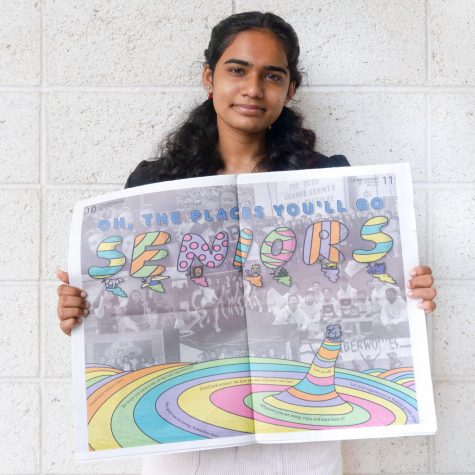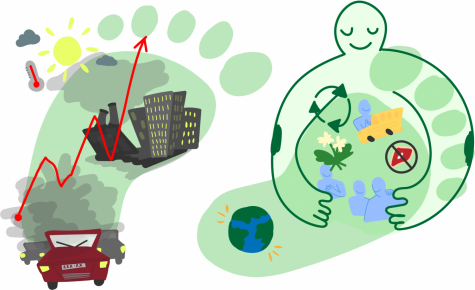Minimizing Waste for Sustainable Living in COVID
An emphasis on sustainable living and protecting the environment has been important for many years as individuals start to shift their lives in order to produce a smaller carbon footprint. However, the COVID-19 pandemic has led to the rise of many regular and unsustainable habits, and one of its many consequences has been the increased production of plastic.
Due to the heightened dependence on non-reusable containers, disposable masks and plastic utensils, the environment continues to worsen day-by-day through increased plastic waste. As we move forward into the new year, there are several significant yet easy ways we can help contribute to the sustainability movement and to the health of our planet.
Reusable masks
The holy grail of COVID containment and human protectors, masks have been a daily part of our lives last year. Disposable masks, though practical and accessible to everyone, could accumulate over 129 million pounds of waste in the coming year, according to Science Magazine.
Rather than producing wasteful amounts of masks, we could switch over to reusable cloth masks. Cloth masks not only provide a substantial amount of protection, but they are also fashionable and cheap. By buying masks from small sellers, you are not only supporting sustainable living, but also small businesses, who continue to face financial hardship due to COVID.
Eat at home
One aspect of COVID that has helped the sustainability movement is the ability to eat homemade food. However, COVID has also popularized take-out food, mostly packaged in plastic, non-reusable containers with a handful of plastic utensils.
While take-out once in a while will not lead to a significant amount of waste, regular outdoor eating is not only wasteful but also unhealthy and expensive. Making food at home is extremely simple with a large number of recipes online and is typically healthier and tastier than many restaurant foods. It also reduces food waste produced in restaurant kitchens.
Reuse disposable bags
As COVID has taught us, using plastic is sometimes inevitable, but you can mitigate its negative effect by repurposing the plastic you do use. Turn your plastic yogurt tub into a new planter, knit plastic bags into baskets or use plastic coffee cups to paint with. The possibilities are endless with several YouTube tutorials to follow.
Additionally, these creations like plastic mats and scarves can be donated to many homeless shelters and other places in need to provide comfort to struggling individuals. Not only are you helping the planet, but you are also helping local communities.
Be patient
Switching to completely sustainable living within a pandemic is not possible, to say the least. Do not feel guilty if you have to resort to using plastic or disposable masks. Keep in mind that you are just a human and living a perfectly sustainable life is a long process. Focus on your creativity and resourcefulness to practice small sustainable habits to slowly help the environment as we move into 2021.
Your donation will support the student journalists of Portola High School. Your contribution will allow us to purchase equipment and cover our annual website hosting costs.

Dheeksha Bhima Reddy is the co-Editor-in-Chief for her third and final year on the Portola Pilot. Through her newfound obsession of drinking coffee (cold...














![Junior Joanna Peng utilizes a MacBook and iPad after school to work on assignments. One of Peng’s most used products is her iPad due to its versatility. Peng uses it as a computer using a magic keyboard and also uses it to draw and make calls. “Ive bought iPads since the first generation when it came out, [I’ve bought the] minis, and then I crashed [the iPad 3] under my table,” Peng said. “Its something that I continue to buy and continue to use most often in my life.”](https://portolapilot.com/wp-content/uploads/2024/02/IMG_5259-600x450.jpeg)

